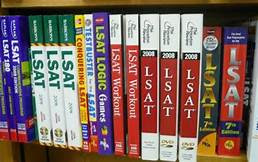Going to law school can be a life-changing experience. But a new
research paper says the very act of studying for the law school entrance
exam actually alters your brain structure – and could make you smarter.
Intensive study for the Law School Admission Test reinforces circuits in the brain and can bridge the gap between the right and left hemispheres, according to researchers at the University of California, Berkeley Department of Psychology and U.C.’s Helen Wills Neuroscience Institute, the National Law Journal reported.
Those changes can improve reasoning ability, and–perhaps–even increase your IQ score, the researchers said.
The research team performed brain scans on 24 college students and recent graduates, both before and after they spent 100 hours studying for the test over a three-month period. The researchers also scanned 23 young adults who didn’t study for the test. Among those who studied, the results showed increased connectivity between the frontal lobes of the brain, as well as between the frontal and parietal lobes, which are parts of the brain associated with reasoning and thinking.
The study’s findings were reported earlier this month in the journal Frontiers in Neuroanatomy.
“The fact that performance on the LSAT can be improved with practice is not new,” lead researcher Allyson Mackey told NLJ. “What we were interested in is whether and how the brain changes as a result of LSAT preparation – which we think is, fundamentally, reasoning training. We wanted to show that the ability to reason is malleable in adults.”
The study focused on fluid reasoning – the ability to tackle a novel problem – which is a central part of IQ tests and can predict academic performance or ability in demanding careers, according to Psych Central, a website run by mental health professionals.
“People assume that IQ tests measure some stable characteristic of an individual, but we think this whole assumption is flawed,” Silvia Bunge, the study’s senior author, said to Psych Central. “We think the skills measured by an IQ test wax and wane over time depending on the individual’s level of cognitive activity.”
Law students — you’re facing a poor job market, higher tuition and increasing debt loads, but all that studying might just have made you smarter. So you’ve got that going for you.
Intensive study for the Law School Admission Test reinforces circuits in the brain and can bridge the gap between the right and left hemispheres, according to researchers at the University of California, Berkeley Department of Psychology and U.C.’s Helen Wills Neuroscience Institute, the National Law Journal reported.
Those changes can improve reasoning ability, and–perhaps–even increase your IQ score, the researchers said.
The research team performed brain scans on 24 college students and recent graduates, both before and after they spent 100 hours studying for the test over a three-month period. The researchers also scanned 23 young adults who didn’t study for the test. Among those who studied, the results showed increased connectivity between the frontal lobes of the brain, as well as between the frontal and parietal lobes, which are parts of the brain associated with reasoning and thinking.
The study’s findings were reported earlier this month in the journal Frontiers in Neuroanatomy.
“The fact that performance on the LSAT can be improved with practice is not new,” lead researcher Allyson Mackey told NLJ. “What we were interested in is whether and how the brain changes as a result of LSAT preparation – which we think is, fundamentally, reasoning training. We wanted to show that the ability to reason is malleable in adults.”
The study focused on fluid reasoning – the ability to tackle a novel problem – which is a central part of IQ tests and can predict academic performance or ability in demanding careers, according to Psych Central, a website run by mental health professionals.
“People assume that IQ tests measure some stable characteristic of an individual, but we think this whole assumption is flawed,” Silvia Bunge, the study’s senior author, said to Psych Central. “We think the skills measured by an IQ test wax and wane over time depending on the individual’s level of cognitive activity.”
Law students — you’re facing a poor job market, higher tuition and increasing debt loads, but all that studying might just have made you smarter. So you’ve got that going for you.

